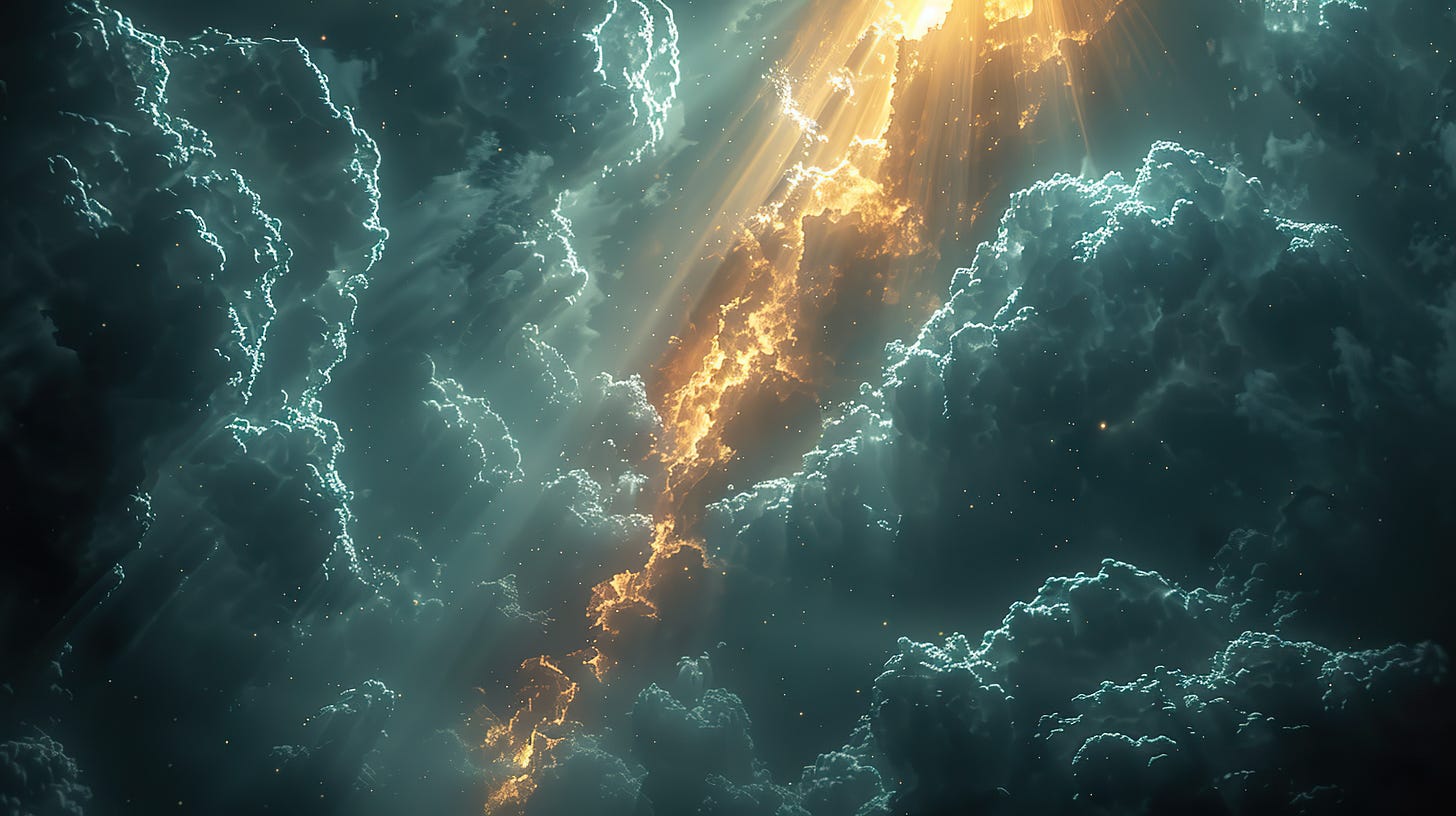As noted by Rav Eliezer HaKalir in his hauntingly beautiful Kinah - Eish Tukad B’Kirbi, the Jewish people historically have our ups and downs. We have had our periods of exile and our periods of redemption. In between these periods, there have been times which have been outright horrific as well as times which have been graceful and prosperous. There have also been times which were perhaps a mixture of both, leading to confusion and fragile hope for a better time.
I feel like we can relate to such a time, as today we are living in such a state of simultaneous beauty and horror. This was also the state of affairs for the Jewish people in the desert.
To recap, we left Mitzrayim on a high, as we went from rags to riches literally overnight. It was clear that Hashem loved us, with outright miracles every day and every moment. We stood at Har Sinai, we were eating the manna and things were going pretty good. That is, until we made the decision to build the Egel, the Golden Calf, from there things appeared to go downhill. The people complained about food and water, there were countless plagues, punishments and quarreling.
When Aharon passed away, the protective clouds of Glory went away. The people felt all but abandoned by God. They were alone and the other nations didn’t give them respite and rest. At the same time, they were still receiving the manna and had relative comforts. They were still on the highest levels of spirituality. It was a time of both beauty and horror. It was a time of an unprecedented closeness of the Jewish people to our Creator, yet there was still a distance.
At least from our perception.
Along comes Balak, further making the people feel ostracized and threatened with extinction. Together with Balaam, he attempted to inflict the Jewish people with further suffering and pain. However, Hashem put different words in the mouth of Balaam. With these words, Hashem conveyed to us that His love for us is limitless, that He sees us as the fulfillment of the purpose of creation.
While things might appear rough, we have not been abandoned. We are wanted and loved by Hashem. We are a nation that is apart from the others. We are resilient, we are indestructible and we are the one nation which has survived millennia of exile without assimilation.
Moshe loved the Jewish people like a father to a son, so he wanted to impart this message to us. He therefore wrote Parashas Balak. It was a series of events that we would not know about otherwise. By writing Parshas Balak, Moshe gave us a glimpse into what is really going on. Moshe helped us realize that we are not really that alone and we are not abandoned.
Times can get tough as we can go from exile to redemption and back again, but we must always remember that Hashem has our backs. Moshe taught us that to be a Jew is to be loved by Hashem, not hated by others. By being apart, we can hone our resilience and destiny. We are not alone, as Hashem is always right there with us.
The question though arises - why did such a beautiful and powerful lesson and perspective need to come from an evil man like Balaam? Why couldn't this have been the prophecy of a tzaddik? We even find in Tehillim 85 that Dovid HaMelech wrote:
אשמעה מה־ידבר האל ה' כי ידבר שלום אל־עמו ואל־חסידיו ואל־ישובו לכסלה
Let me hear what God, the LORD, will speak; He will promise well-being to His people, His faithful ones; may they not turn to folly.
The Mei Hashiloach teaches that this means that Dovid HaMelech lent his ear to hear what Hashem was saying to Himself, and he heard that Hashem’s only desire is the betterment of Israel. For at the time when Hashem spoke to him, He spoke of the welfare of Israel. Yet Dovid HaMelech wanted to know what Hashem was occupied with in His own thoughts, and he heard that there too Hashem was speaking of the welfare of His people and His devoted ones.
So why was our parashah and the glimpse of God’s mind revealed via Balaam and not anyone else?
I would like to suggest that the purpose of this message being conveyed by Balaam of all people is to teach us that the love Hashem has for us is so deep and pure that even the most evil and sinister of men know this deep down.
Yes, Dovid HaMelech was attuned to the inner thoughts of Hashem, understanding that even in His own inner thoughts, God is concerned about His people. However, Hashem was conveying to us that Balaam, who was not necessarily fully in sync with Hashem, also understood this. Even when we feel alone and abandoned, it is merely our perception. Even our enemies know that we are deeply loved by Hashem.
The message of Balaam is that while the Balaams of this world might curse us, hurt us, and persecute us, somewhere deep down, they know that we will not be hurt. This realization itself is a reason for comfort. We have not been abandoned. Soon, as Rav Eliezer HaKalir ends his Kinna, we will return to Yerushalayim, free from worries and filled with eternal joy.






This is so important to read and know. Thank you, Shui.